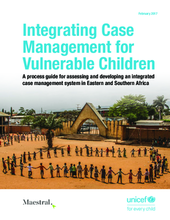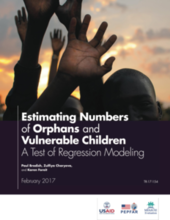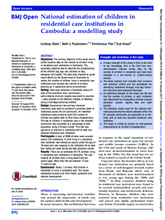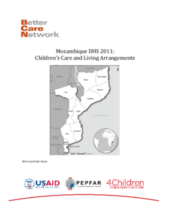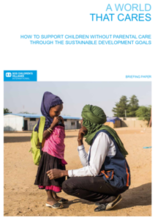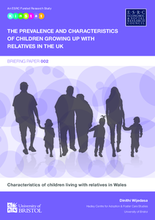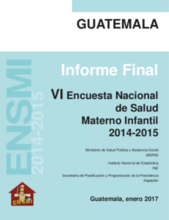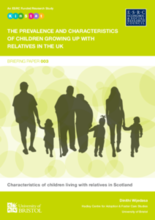Displaying 191 - 200 of 558
This guide is aimed at informing policy makers and programme managers working across Eastern and Southern Africa to implement an integrated case management approach to practice with vulnerable children and their families.
This study expands on an earlier study that reported a tight linear fit between national adult HIV prevalence and the percentage of children living in a household with at least one HIV-positive adult. The authors extended this analysis to all existing DHS data sets with HIV testing, to determine the feasibility of using regression modeling to estimate the size of two priority groups: (1) children living with at least one adult who is HIV-positive, and (2) orphans and coresident children living with at least one adult who is HIV-positive.
Bringing together cross-disciplinary expertise, this volume addresses a vast range of topics related to child abuse and neglect in Uganda.
The primary objective of this study was to collect baseline data on the number of children living in residential care institutions in Cambodia.
This series of country briefs aims to provide an analysis of children’s living and care arrangements according to the latest available data from Demographic and Health Surveys (DHS) or Multiple Indicators Cluster Surveys (MICS) at the time of publication.
This book presents the results of this research on more than 52,000 children placed in public care in Romania (in special protection) who receive family or residential-type protection services as well as on the children at risk of separation from their families from the source communities.
This briefing describes how the needs of children without parental care can be addressed through five of the SDGs: no poverty (1); quality education (4); decent work and economic growth (8); reduced inequalities (10); and peace, justice and strong institutions (16).
This briefing paper, which is the second in a series, provides a brief overview of the characteristics of the children growing up with relatives in Wales.
El informe tiene como propósito presentar a las autoridades gubernamentales, no gubernamentales, agencias de cooperación internacional, medios de comunicación social, instituciones académicas, centros de investigación y población en general, los resultados obtenidos que muestran las condiciones de salud reproductiva, salud materno infantil y para los demás temas incluidos en la encuesta.
This briefing paper, which is the third in a series, provides a brief overview of the characteristics of the children growing up with relatives in Scotland.

